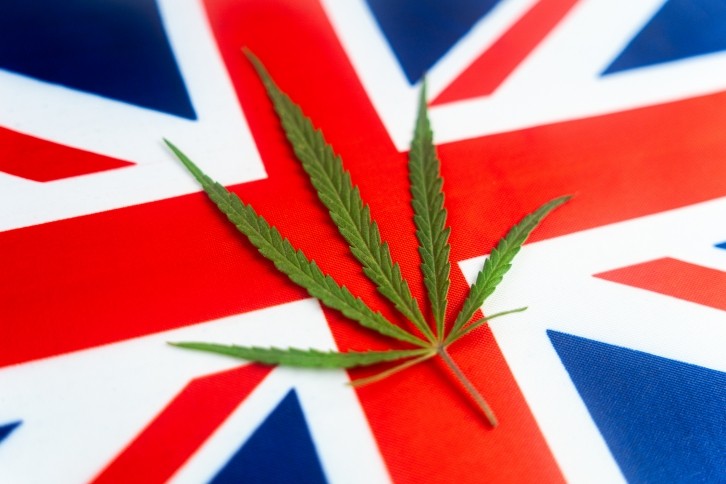An 'historic' moment for CBD industry as UK Gov accepts recommended THC limit

The UK Home Office (HO) sought the ACMD’s (Government’s Advisory Committee on the Misuse of Drugs) advice on safe levels of THC (Delta-9-tetrahydrocannabinol, the primary psychoactive cannabinoid in the cannabis plant) in CBD products back in December 2021, but had not formally responded to that advice until now.
A letter to the ACMD published today (October 24th) on the Government’s website, from MP Chris Philp, Minister of State for Crime, Policing and Fire, states that the Gov accepts the advised limit as well as the advised standardised protocols for testing of products.
That advice states that any CBD product must limit the content of controlled phytocannabinoids such that the dose of delta-9-THC and each of the other controlled phytocannabinoids does not exceed 50 micrograms per unit of consumption.
The acceptance of the recommendation does not make this law yet and the letter states that the specificity of the terms of legislative provisions setting the unit of consumption (or serving) for the permitted dose, which will differ between different products, will require further careful consideration.
Steve Moore, co-founder of the CBD consortium ACI (Association for the Cannabinoid Industry), hails the new announcement as an ‘historic’ moment as he says it means that the first legal framework for consumer products that contain controlled cannabinoids has become "clearer and closer".
He says that the ACI, who had put pressure on the HO to set a legal THC limit, will work with the HO to address the ambiguities and areas of clarification the Ministerial response contains.
He adds: “It is imperative for the nascent UK consumer cannabinoid sector that a legal framework is put in place to provide comfort for companies operating in the space and reassurance for consumers and retailers.
“That this will also help accelerate the regulatory process that businesses have invested in only adds to the importance of the explicit commitment to bring forward the necessary amendments to the Misuse of Drugs 2001 regulations.
“The ACI will comment further after meetings in the coming days with senior Home Office officials who have engaged with this issue honestly and openly in the past three months”
This news comes less than two weeks after the Food Standards Agency (FSA) slashed daily CBD limit guidance for consumers, from 70mg to 10mg per day.
Marc Burbidge, founder of CBD finished product manufacturer B3 Labs, notes a potential concern could arise from the recent reduction of CBD daily limits and the newly accepted recommendation.
He explains: “Following the FSA’s new guidance on October 12th we reduced our tincture dosages from a quarter of a pipette, to a drop, and others will likely have done the same. This means you now have more servings within a container. With them providing a new THC limit based on a ‘per serving’ basis, this essentially means you could have a product with reduced dosages and more concentrated THC.”
This makes it essential the HO clarifies the definition of "unit of consumption" to remove any risk of regulatory "loopholes", he says.
Testing of products
The MP’s letter continues to state that, subject to funding being found, the HO accepts the advice that a further inter laboratory comparison trial (ring trial) should be commissioned specifically to support the capability of testing laboratories to detect controlled phytocannabinoids below the recommended maximum levels in a representative range of consumer CBD products.
The letter continues to say the HO also accepts the ACMD’s advice regarding the accurate testing of CBD products, namely that standardised protocols should be developed for the extraction, separation and quantification of controlled cannabinoids.
The accepted advice states: “These must be of sufficient reproducibility and sensitivity to be appropriate for the measurement of the level of controlled phytocannabinoids as recommended in this report.
“As chemical reference standards are not currently commercially available for all controlled phytocannabinoids, suppliers of chemical reference materials should be encouraged to produce certified standards for those controlled cannabinoids for which standards are not currently available.
“…The analytical methods used should be accredited to ISO 17025:2017 to ensure appropriate method validation, quality control and independent assessment of the methods.”
MP Philp states that the Gov will work with partners in industry to “seek to meet these ambitions”.




